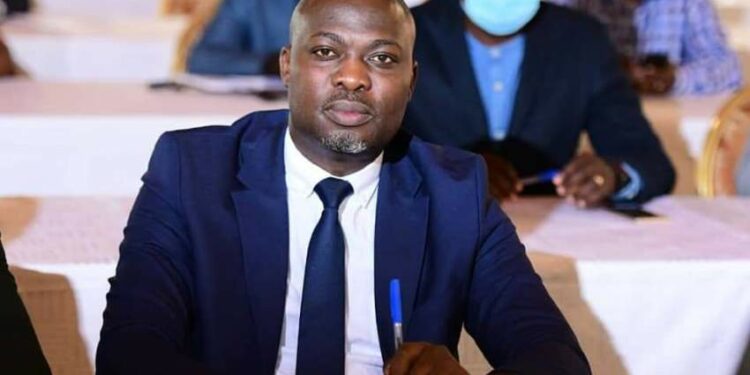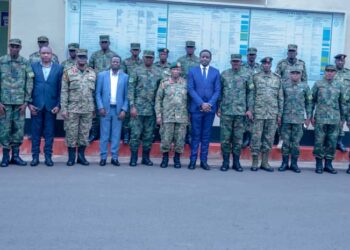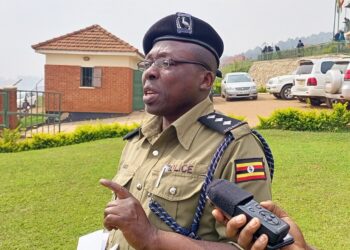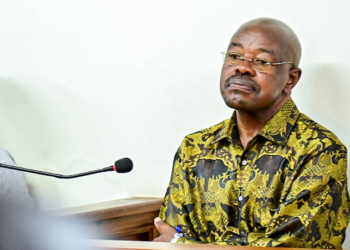The ongoing controversy surrounding the Kyenjojo Road tender has thrust Hon. Richard Sebamala, MP for Bukoto Central, into an unwarranted spotlight. However, a deeper look into the facts reveals that the accusations against him are diversionary—designed to distract from critical questions about the integrity of Uganda’s procurement processes.
This debate is not about Hon. Sebamala’s involvement as a consultant but rather about whether Arab Contractors legitimately secured the tender. Serious inquiries must focus on these concerns, while other distractions should be dismissed as sideshows.
The problem with fighting corruption in Uganda is that the corrupt are so wealthy and therefore can have the muscle to always fight back. And this is why Sebamala is in the eye of the storm over questioning the process through which Arab Contractors won the bid to work on Kyenjojo roads. Nothing more.
Background of the Kyenjojo Road Tender
The Kyenjojo Road project, funded by the Islamic Development Bank (IsDB), is a high-value infrastructure venture that attracted bids from several contractors, including UCA Joint Venture and Arab Contractors. Given the stakes, the process underwent scrutiny by multiple regulatory bodies, including the Public Procurement and Disposal of Public Assets Authority (PPDA) and the Uganda National Roads Authority (UNRA).
Hon. Sebamala’s involvement arose when stakeholders requested his expertise in reviewing the tendering process amid allegations of irregularities. Far from initiating the controversy, Sebamala acted as an independent professional auditor, leveraging his extensive experience in civil engineering and procurement oversight.
Sebamala’s Role and Findings
Sebamala’s review of the documentation and process uncovered several critical discrepancies:
1. Bid Security
UCA Joint Venture’s bid security was originally issued by Morgan Bank Azerbaijan. Following the bank’s collapse due to the Turkey earthquake, UCA secured a replacement through UBA Bank Uganda.
The bid security was extended four times, ensuring continuous compliance, contrary to claims of irregularity.
2. Arab Contractors’ Compliance Gaps
Missing notarized powers of attorney: A mandatory requirement.
Lack of proof of equipment ownership: Key equipment requirements were not met.
Uncertified financial statements: Arab Contractors submitted unaudited books from 2021, failing to meet the 2022 requirement.
Ambiguity in company identity: The tender failed to clarify whether Arab Contractors Egypt or Arab Contractors Uganda was responsible for the bid.
3. Evaluation Irregularities
UNRA reportedly extended the margin of error for bid pricing beyond the original evaluation criteria, raising questions about favoritism.
Sebamala presented these findings to PPDA, UNRA, and IsDB representatives. He stopped short of further involvement, leaving it to the authorities to act.
Sebamala’s Professional Expertise
Hon. Sebamala’s credentials validate his role as a consultant:
Academic Qualifications: He holds a degree in civil engineering and two master’s degrees—one in civil engineering and another in institutional leadership and management.
Professional Experience: With over a decade of experience consulting on multi-billion-dollar projects across Africa, Sebamala has earned a reputation for integrity.
Business Interests: As the owner of Tender America, an export company, and a property mogul, Sebamala is financially secure. He has no incentive to engage in petty controversies over a UGX 500 billion contract.
These facts demonstrate that Sebamala’s involvement was driven by professionalism, not personal gain.
The Real Issue: Arab Contractors
The core of the Kyenjojo Road controversy lies in Arab Contractors’ compliance failures. Sebamala’s findings reveal gaps in their documentation and raise valid questions about their selection. For instance:
Why were key requirements, like notarized powers of attorney and proof of equipment, overlooked?
How was a company with uncertified financial statements allowed to proceed?
What role did alleged ministerial influence play in the final decision?
These issues are more pressing than the baseless allegations against Sebamala.
Why Sebamala Stands Out
Sebamala’s conduct throughout the saga has been exemplary. He demonstrated leadership by sharing his findings transparently and avoided using the controversy for personal or political gain.
Moreover, his decision to disengage and focus on his family in the United States during Thanksgiving—a tradition he has upheld for years—shows a professional detachment from the matter.
Way Forward
The Kyenjojo Road saga underscores systemic flaws in Uganda’s procurement processes. To prevent future controversies, key reforms are needed:
1. Strengthening Oversight: Regulatory bodies like UNRA and PPDA must enforce stricter compliance and penalize non-compliance.
2. Promoting Transparency: Detailed evaluation reports should be publicly accessible to ensure accountability.
3. Ensuring Merit-Based Awards: Contracts must be awarded solely on technical and financial merit, free from political interference.
Conclusion
Hon. Richard Sebamala’s involvement in the Kyenjojo Road tender reflects his commitment to professionalism and transparency. The focus must shift from scapegoating individuals to addressing the broader systemic issues in public procurement.
Sebamala’s contributions should inspire a culture of accountability and integrity in public service, ensuring that Uganda’s infrastructure projects meet the highest standards of fairness and efficiency.
But like I said earlier, The problem with fighting corruption in Uganda is that the corrupt are so wealthy and therefore can have the muscle to always fight back. And this is why Sebamala is in the eye of the storm over questioning the process through which Arab Contractors won the bid to work on Kyenjojo roads. Nothing more.
Do you have a story in your community or an opinion to share with us: Email us at editorial@watchdoguganda.com













